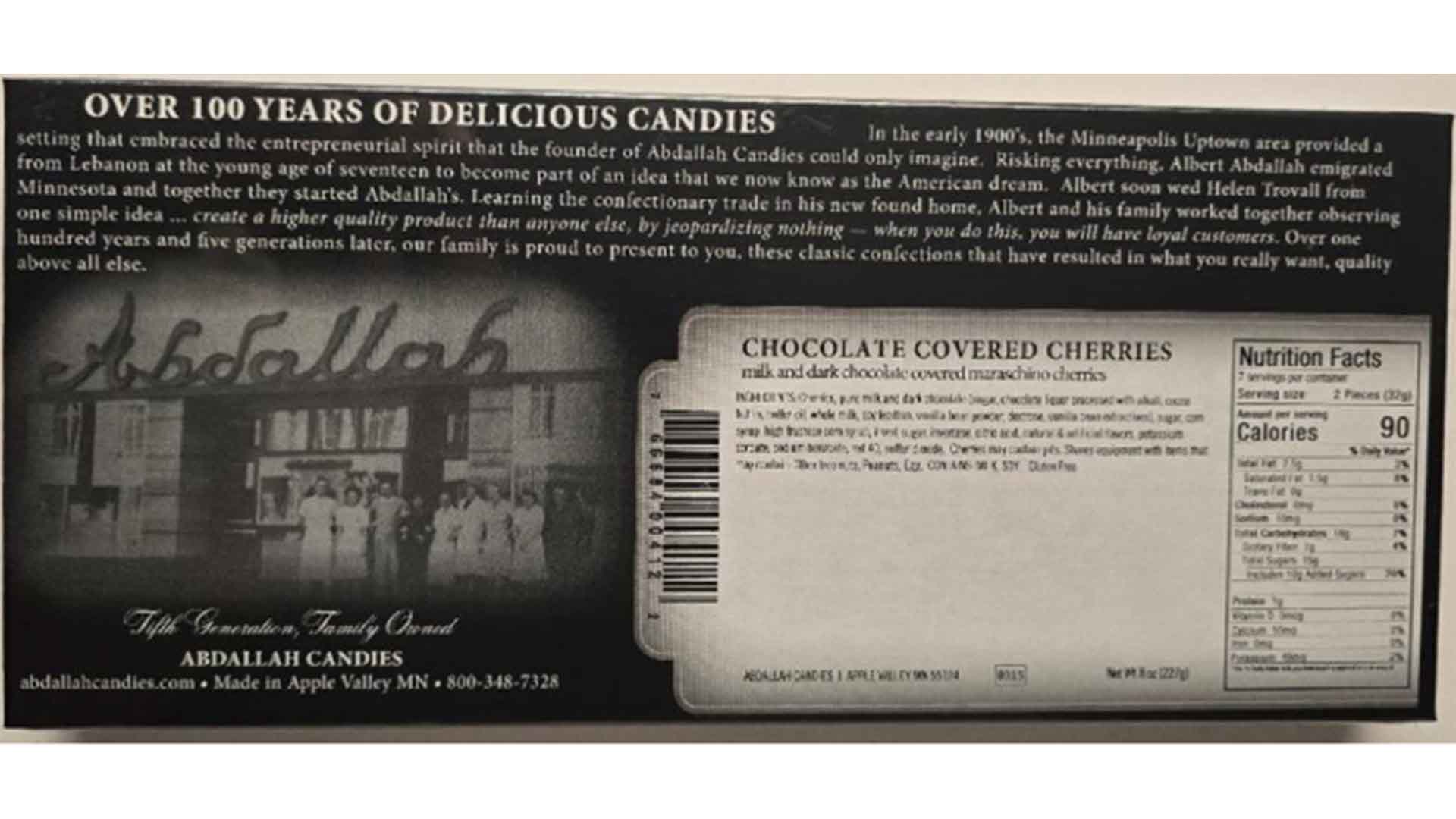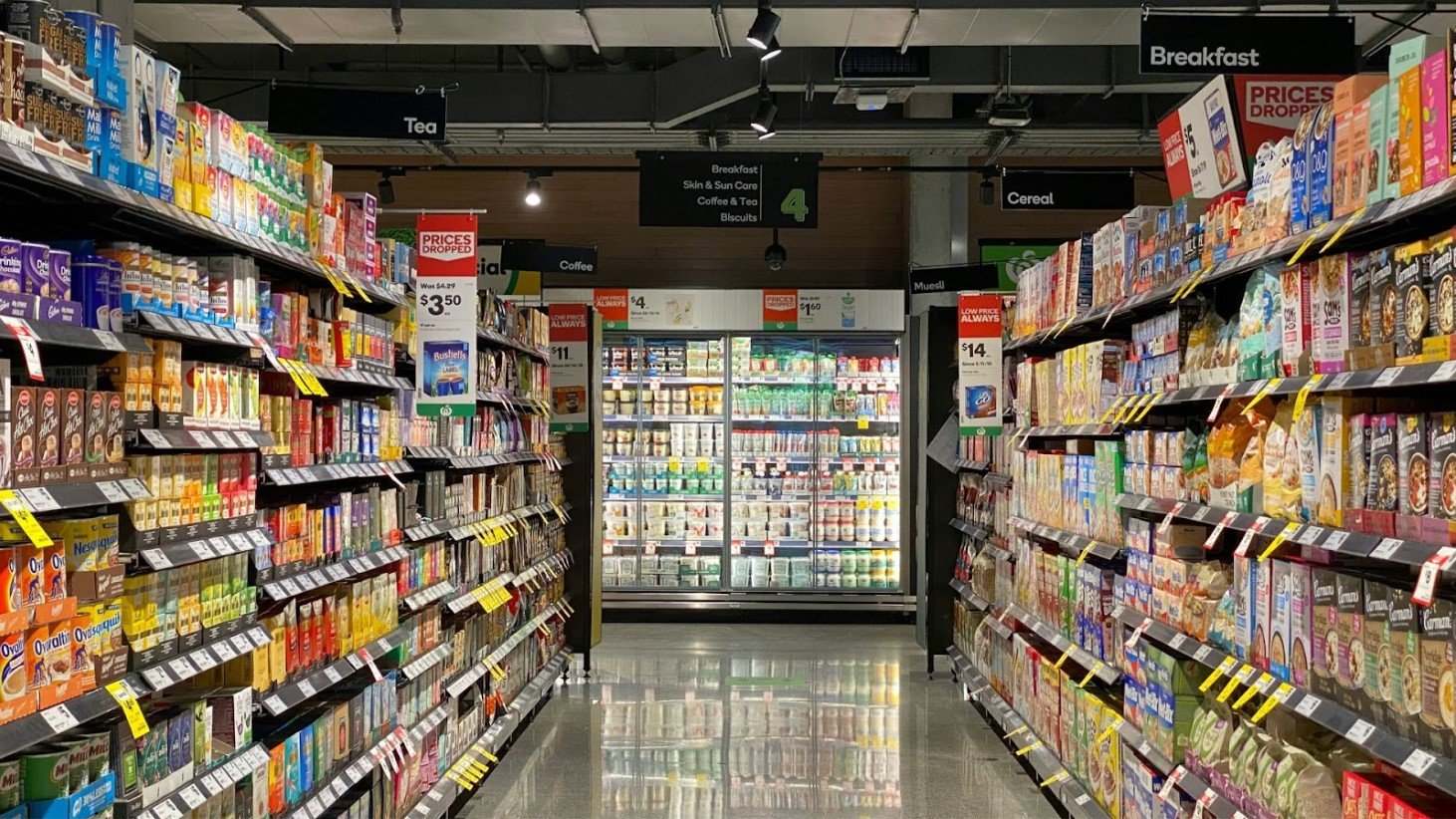Candy Recall Sparks Concerns of Potentially Fatal Reactions
Abdallah Candies, a Minnesota candy maker, announced a nationwide recall of its Sea Salt Almond Alligators. The reason? A serious mislabeling issue that omitted almonds from the ingredient list, posing a significant health risk to those with nut allergies.
Distributed from March 1 to March 29, these chocolates were meant to bring joy, not concern. Yet, with almonds hidden under a Chocolate Covered Cherries label, the potential for allergic reactions became an unintended consequence.
The Root of the Problem
At the heart of this recall is a small yet critical oversight: almonds are absent from the ingredient list of the boxes marked with code “0315.” This error has put consumers at risk, especially those with severe almond allergies who rely on accurate labeling to navigate their dietary needs safely.

Source: Tom Hermans/Unsplash
According to CBS News, Abdallah Candies distributed these mislabeled boxes across the nation, sparking widespread concern over the safety of seemingly innocent treats.
Understanding the Risk
The Centers for Disease Control and Prevention (CDC) categorizes food allergies as a significant public health concern, affecting an estimated 6% of adults and 8% of children in the U.S. alone.

Source: Freepik
Food allergies can lead to severe reactions, including anaphylaxis — a potentially fatal allergic response (via Mayo Clinic). This makes the mislabeling of the Abdallah Candies’ Sea Salt Almond Alligators not just a minor mistake but a serious health hazard.
The Nationwide Recall
Abdallah Candies, with a rich history dating back to 1909, features quality and tradition in the confectionery industry. Recognizing the gravity of their mistake, they have voluntarily recalled the affected Sea Salt Almond Alligators.

Source: Freepik
These products were sold in a variety of retail settings, including specialty and grocery stores, ensuring a broad reach and, consequently, a substantial recall effort.
Identifying the Affected Products
While the front of the box displays “Almond Alligators,” a glance at the back tells a different story.

Source: Abdallah Candies/FDA
The nutritional label fails to mention almonds as an ingredient, misleading those with nut allergies about the contents within.
Company's Swift Action
Upon discovering the error, Abdallah Candies was quick to issue a recall notice, advising consumers to either destroy the product or return it to the place of purchase for a full refund (via the FDA).

Source: Pressmaster/Pexels
Their proactive approach in addressing the mistake illustrates a commitment to consumer safety and the integrity of their products, reinforcing trust in their brand amid the confusion.
No Reported Illnesses Yet
To the relief of many, Abdallah Candies has not been notified of any illnesses stemming from the recalled product.

Source: Pixabay/Pexels
This fortunate outcome highlights the effectiveness of their rapid response and the importance of such recalls in preventing potential health crises. Consumers are encouraged to remain vigilant and report any health issues related to the recall.
The Importance of Accurate Labeling
This incident shines a spotlight on the critical role of accurate labeling in food safety. With food allergies becoming more prevalent, the impact of mislabeling can extend far beyond a simple consumer complaint, potentially leading to life-threatening situations (via Food Allergy & Anaphylaxis Connection Team).

Source: Freepik
It’s a reminder for the food industry to prioritize precision in every aspect of product labeling.
How Consumers Can Protect Themselves
The recall serves as an important lesson for consumers, especially those with food allergies or sensitivities.

Source: Nathália Rosa/Unsplash
Thoroughly checking product labels and being proactive about dietary restrictions are prime examples. In an age where food allergies are increasingly common, staying informed and cautious is paramount.
Food Safety and Public Health
The involvement of the U.S. Food and Drug Administration (FDA) in overseeing such recalls highlights the measures in place to protect public health.

Source: Gustavo Fring/Pexels
These regulatory actions ensure that companies are held accountable for their products, promoting a safer food environment for all. The swift resolution of such incidents is crucial in maintaining public trust and safety.
Looking Ahead: Preventive Measures
In light of this and other recent recalls, there is a growing advocacy for stricter labeling laws and regulations to prevent similar incidents (via the Federation of American Scientists).

Source: Freepik
Enhancing the oversight on food labeling can significantly reduce the risks associated with food allergies, paving the way for a safer consumption landscape. It’s an essential step toward safeguarding public health and preventing future allergic reactions.
Staying Informed
For consumers, staying informed about recalls and food safety notices is crucial. Regularly checking resources like the FDA’s website for updates can help mitigate the risks associated with food allergies.

Source: Franki Chamaki/Unsplash
As we navigate a world with increasing dietary concerns, it is more important than ever to be proactive about our health and the foods we consume.
